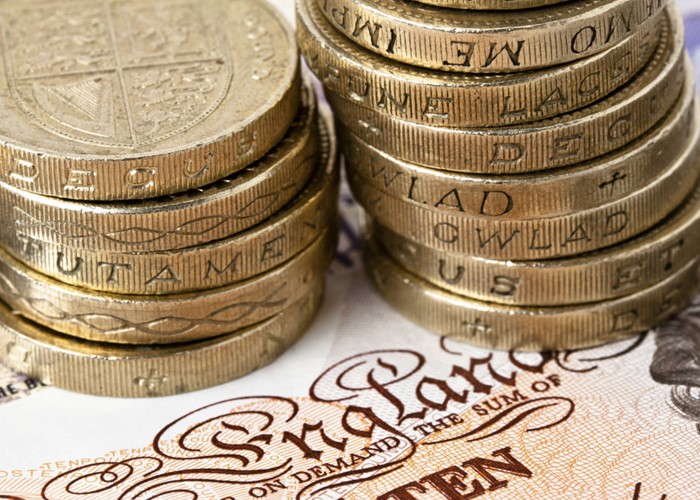Be a pension millionaire!

You could be a pension millionaire even though you never saved more than £300 a month for your retirement.
If you start saving early enough, you could have a luxurious retirement. In fact, you could be a pension millionaire! Here’s how.....
The secret to building a big pension pot is to start saving early. That’s due to the miracle of compound interest.
Let’s imagine you have £1000 to spare and you put it in a savings account. The account pays 5% interest, so at the end of the year, you’ll have £1050. The following year, interest is paid at 5% on £1050, so your nest egg grows to £1102.50. In the third year, the balance rises to £1157.62. After thirty years, your balance has grown to £4322 and your annual 5% interest payment is £206.
The same principle applies to pensions. And if you start saving for your retirement in your 20s, your money has plenty of time to grow to become a substantial sum.
Growth
Before we look how much money you could make, we need to look at growth rates. I’m going to assume that the pension pot is wholly invested in the stock market. That’s because history suggests that shares are the top-performing asset class. Shares out-perform cash, bonds and even property.* If you look at shares since WW2, they’ve delivered an average annual gain of 5 to 6% a year. That’s a real-terms gain, on top of inflation.
Sure, shares are volatile. In some years, you’ll see big falls; some, big rises; others, not much movement at all. But over long periods of 20 years or more, shares have normally done well.
So let’s say you’re 22, and you’re able to pay £200 a month from your salary into your pension pot. At the end of that year, you’d have saved £2,400. The tax man would then pay in an extra £480 because basic rate taxpayers get 20% tax relief on pension contributions.
If that pension money then grew by 5% a year until you were 65, it would be worth £25,671 when you retired. That’s just one year’s contribution. Pretty good, huh?
As your career progresses, you contribute more. Here’s when your contributions rise:
|
Age |
Contributions per month |
|
22-26 |
£200 a month |
|
27-31 |
£400 a month |
|
32-41 |
£500 a month |
|
42-65 |
£600 a month |
The tax man continues to boost up your contributions by 20% each year, and gradually your pension pot grows. Then when you’re 65, your total pot reaches £1,040,170. Don’t forget that sum doesn’t include inflation, so it’s in today’s money.
Now I accept that the monthly pension contributions I’ve suggested will be too high for many people. But you might still become a pension millionaire whilst making much smaller contributions. That’s because your employer may also make contributions into your pension pot. If you’re lucky enough to work for an employer who will match your contribution pound-for-pound, your monthly contributions become much lower:
|
Age |
Contributions per month |
|
22-26 |
£100 a month |
|
27-31 |
£200 a month |
|
32-41 |
£250 a month |
|
42-65 |
£300 a month |
I think it’s pretty exciting that you could build up a million pound pension pot whilst making a maximum contribution of £300 a month – as long as you start early.
So what could you do with your million?
Current pension rules allow you to withdraw 25% of your capital as a lump sum, so you could take out £260,000 at 65 and spend it on whatever you want. The rest of your capital must be used to generate an income. Normally that’s done by buying an annuity. Right now, £780,000 could buy an annuity for a 65 year old that would pay £43,000 a year. So you’d receive £43,000 every year until you died. And if your health was poor, you could get a higher annual payment.
In other words, you’d be a prosperous pensioner. You’d have an annual income of £43,000 a year, you’d have a £280,000 lump sum, and you’d also receive whatever state pension was offered by the government at that time.
And here’s some more good news. The government is now rolling out auto-enrolment for pensions to almost all employees. Employers are being forced to make pension contributions for their staff as long as employees contribute too. Hopefully this means that most people will have reasonably comfortable retirements in the 2040s and beyond.
I should add that pensions is a complicated area. There lots of jargon and the pensions industry has used that jargon to bamboozle customers and sell them poor products. If you want to make the pensions system work for you, try and become as knowledgeable as you can. You can learn about some of the basics in my blog series: Become a pensions expert in five days. It might also be worth visiting a good Independent Financial Advisor (IFA.)
That said, my overall message is positive. If you save and invest sensibly, you could have a comfortable retirement. You might even have a million pound pension pot.
More: Help! In my forties and still no pension | The danger of using property as a pension
*Between 1959 and 2009, shares grew at 5.2% a year in real terms according to the Barclays Gilt Equity Study. Over the same period, house prices grew at 2.7% a year in real terms according to the Halifax House Price Study.
This is a classic article that has been updated.
Comments
Be the first to comment
Do you want to comment on this article? You need to be signed in for this feature